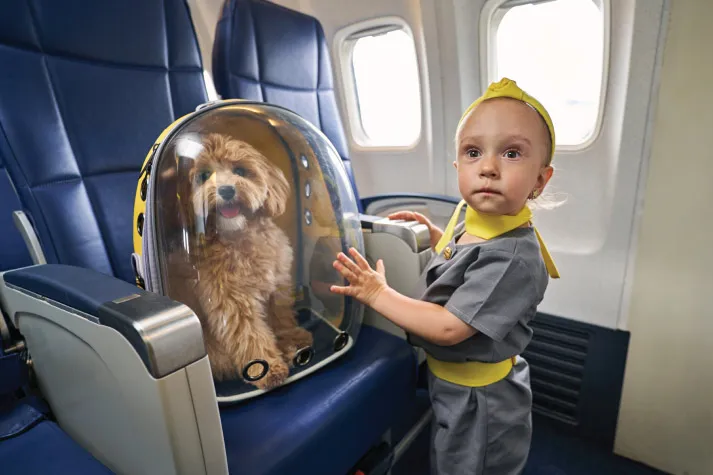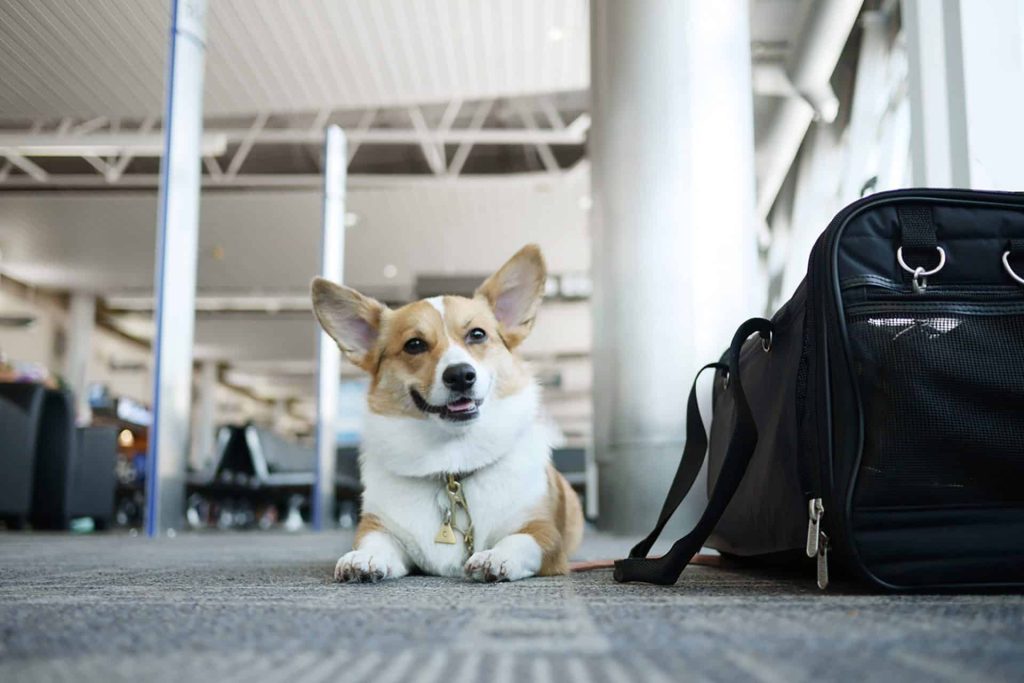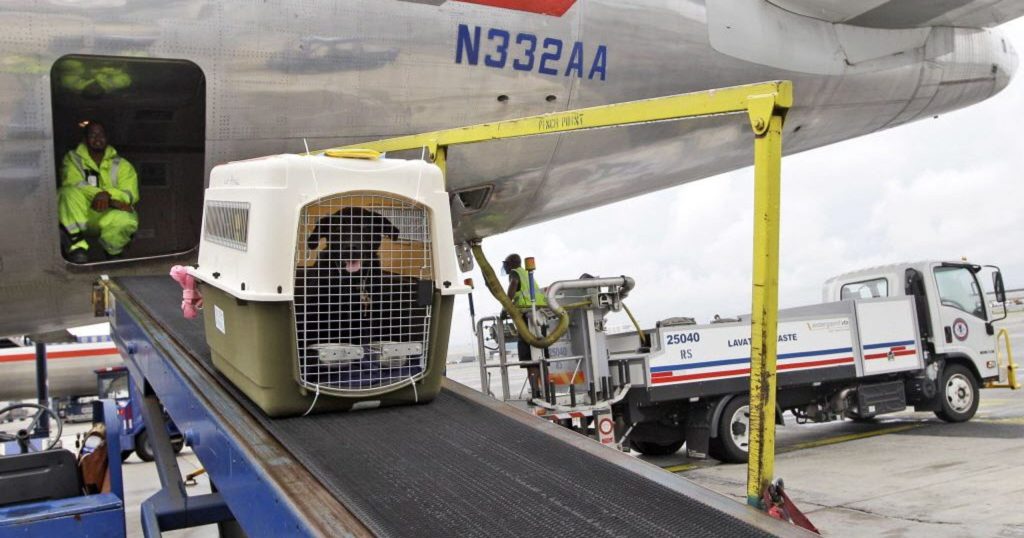Regulations for Transporting Pets by Air to France: A Complete 2025 Guide
Transporting pets by air to France is a process that requires careful planning and compliance with specific regulations. Whether you’re relocating, going on vacation, or moving a pet for adoption, it is essential to ensure your furry companion meets all legal and safety requirements. This article provides a comprehensive overview of the regulations for transporting pets by air to France in 2025, including documentation, vaccination, airline rules, pet carrier standards, quarantine procedures, and more.
Table of Contents
-
Introduction
-
Eligible Pets for Air Travel to France
-
Entry Requirements for Pets Entering France
-
Pet Passport and Microchipping
-
Vaccination and Health Certificate Requirements
-
Airline Policies and Pet Carriers
-
Pet Travel to France from Non-EU Countries
-
Quarantine Regulations
-
Pet Transport Fees and Additional Costs
-
Tips for a Smooth Travel Experience
-
Final Thoughts
1. Introduction
France is a pet-friendly country, and many travelers or expats want to bring their cats, dogs, or other animals with them. However, pet importation is regulated by both the European Union (EU) and French national authorities. These rules are in place to ensure animal welfare, prevent the spread of diseases like rabies, and maintain biosecurity.
Understanding the required procedures in advance will help you avoid delays, penalties, or the unfortunate denial of entry for your pet.
2. Eligible Pets for Air Travel to France
France allows the entry of the following pets under specific conditions:
-
Dogs (Canis lupus familiaris)
-
Cats (Felis catus)
-
Ferrets (Mustela putorius furo)
Other species, such as birds, rodents, reptiles, or exotic animals, may require special permits or health checks and should be verified with French Customs and the Direction générale de l’alimentation (DGAL).
3. Entry Requirements for Pets Entering France

Whether you’re arriving from within the EU or outside of it, pets must meet certain criteria:
-
Be over 12 weeks old at the time of travel
-
Have a valid microchip
-
Be vaccinated against rabies
-
Travel with a health certificate or EU Pet Passport
-
Enter through a designated Point of Entry (PoE) with proper documentation
If any of these requirements are not met, the pet may be denied entry, quarantined, or returned to the country of origin.
4. Pet Passport and Microchipping
Microchip
All pets entering France must be identified with a microchip compliant with ISO 11784/11785 (15-digit, non-encrypted). If your pet has a different chip, you must provide a compatible reader.
-
The microchip must be implanted before the rabies vaccination.
-
Tattoos are accepted only if made before July 3, 2011, and still legible.
EU Pet Passport
Pets coming from EU countries or certain approved countries (e.g., Switzerland, Norway) can use an EU Pet Passport, which includes:
-
Microchip number
-
Rabies vaccination record
-
Owner’s information
-
Health check details
This passport is a valid travel document across the EU and simplifies the process.
5. Vaccination and Health Certificate Requirements
Rabies Vaccination
Rabies vaccination is mandatory and must meet these criteria:
-
Administered after microchipping
-
Pet must be at least 12 weeks old
-
Wait 21 days after the primary vaccination before travel
-
Booster shots must be up to date and clearly recorded
Additional Vaccinations
While not mandatory, it is recommended to vaccinate pets against:
-
Distemper
-
Parvovirus
-
Leptospirosis
-
Bordetella (especially for dogs in transit)
Health Certificate (Non-EU Countries)
Pets from non-EU countries need:
-
A Veterinary Certificate (EU Annex IV form), issued within 10 days before travel
-
Endorsed by an official government veterinarian
-
Proof of rabies vaccination attached
If entering from a high-risk rabies country, a rabies antibody titer test is required (blood sample drawn 30+ days after vaccination, at least 3 months before travel).
6. Airline Policies and Pet Carriers
Each airline has specific regulations for pet transportation, so it’s crucial to:
-
Check your airline’s pet policy
-
Book in advance (some airlines have limited slots for in-cabin or cargo pets)
-
Prepare an IATA-approved pet carrier
In-Cabin Transport
-
Small dogs or cats under 8 kg (including carrier)
-
Must stay inside a ventilated, secure carrier
-
Carrier must fit under the seat
Checked Baggage or Cargo
-
Larger pets must fly in the cargo hold
-
Carrier must allow the pet to stand, turn, and lie down comfortably
-
Adequate ventilation and water supply is required
Always label the crate with your pet’s name, your contact information, and destination.
7. Pet Travel to France from Non-EU Countries
Low-Risk Countries
Examples: USA, Canada, Australia, Japan
Requirements:
-
Microchip
-
Rabies vaccination
-
EU Annex IV Health Certificate
-
No quarantine (if documentation is valid)
High-Risk Countries
Examples: India, China, Vietnam, parts of Africa
Additional Requirements:
-
Rabies titer test at EU-approved lab
-
Waiting period of 3 months post-testing
-
Strict documentation review
Ensure all documents are translated into French or English and stamped by authorities.
8. Quarantine Regulations
France does not routinely quarantine pets arriving with valid paperwork. However, quarantine may be imposed if:
-
Documents are incomplete or falsified
-
Pet shows signs of illness
-
Rabies requirements are not fulfilled
Quarantine duration and costs depend on the case and can be up to several weeks at designated facilities.
9. Pet Transport Fees and Additional Costs
Airline and handling fees vary, but here are typical cost estimates:
-
In-cabin travel: €50–€150
-
Cargo transport: €200–€800+ depending on weight and route
-
Microchipping: €40–€70
-
Rabies vaccine: €20–€50
-
Health certificate: €50–€200
-
Titer test (if needed): €80–€150
You may also pay customs clearance fees, especially for pets entering from non-EU countries.
10. Tips for a Smooth Travel Experience

-
Plan early – Begin paperwork at least 3–6 months before travel.
-
Check airline regulations – Each airline has slightly different rules.
-
Keep documents handy – All certificates, vaccination records, and IDs should travel with you.
-
Acclimate your pet to the carrier – This helps reduce anxiety during flights.
-
Avoid layovers in high-risk countries – It could complicate entry into France.
-
Use professional pet transport services if you’re unsure about the process.
11. Final Thoughts
Bringing your pet to France can be a smooth experience with proper planning and compliance. Whether you’re relocating for work, study, or simply exploring the country with your animal companion, understanding the regulations for transporting pets by air to France is essential in 2025.
Remember that rules can change, especially in response to international health concerns. Always check the latest information from:
-
French Ministry of Agriculture
-
European Commission on Animal Transport
-
Your airline’s official site
-
Your local veterinary authority
By ensuring all documentation is in order and choosing a pet-friendly airline, you and your pet can enjoy a stress-free journey to France.
Read more:
- Air Travel Regulations for Pet Transport to France
- Latest Statistics on Lifespan by Dog and Cat Breeds

